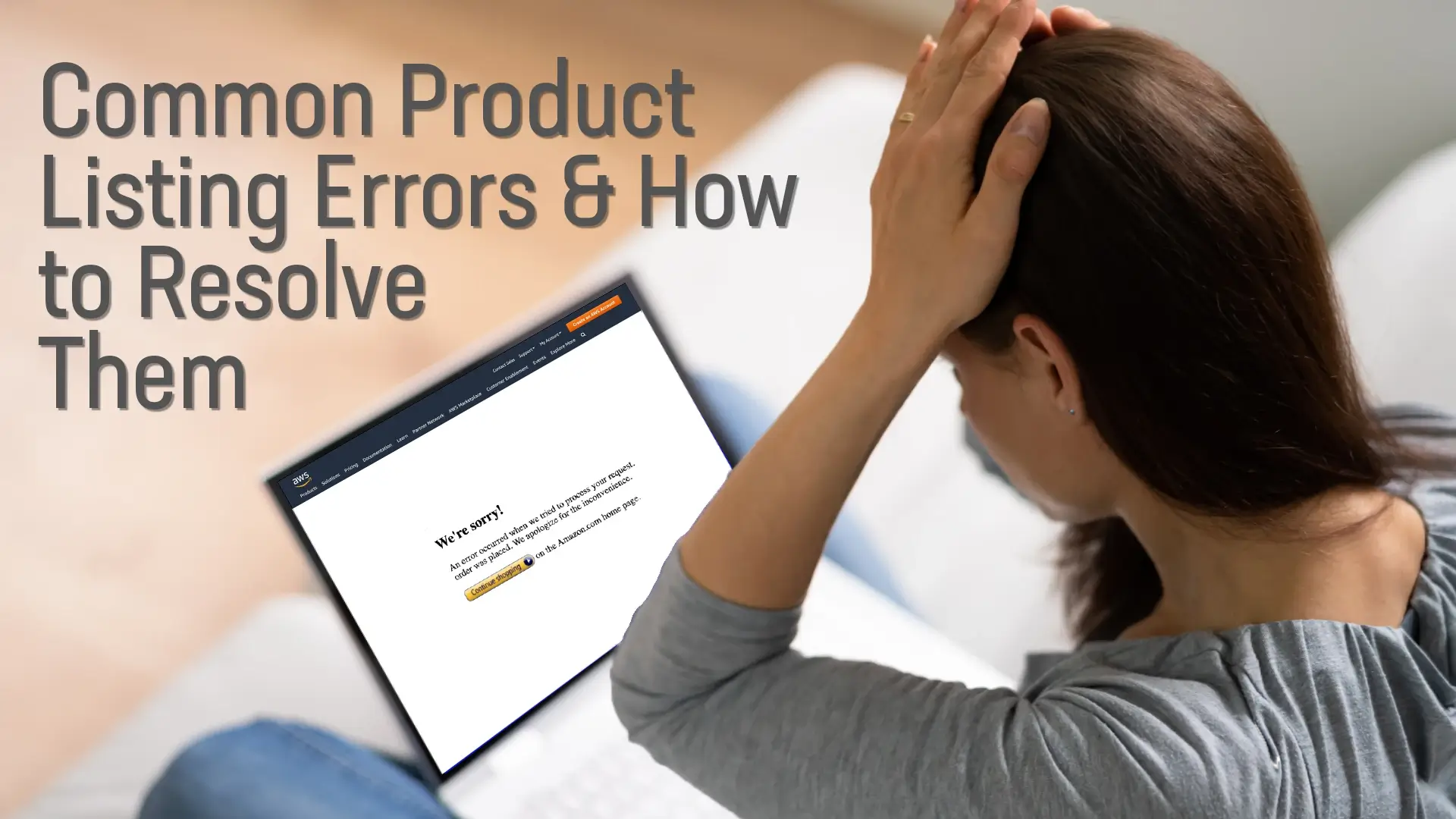Follow this guide and learn how to how to maximize keyword rank and drive traffic to your listing!
If you had to determine the most important aspect of an Amazon listing, what would you say?
The star rating? BSR? The description?
While all of these elements are certainly important at some capacity (and some more important than others), we believe that the most important and underrated aspect of a listing is the product’s title.
The title has tremendous ranking power for a listing. With a keyword-rich title, a product will be indexed for numerous keywords. Add some sales, and that listing can be ranking really well across hundreds, even thousands of keywords!
To illustrate this point, we’ll discuss a product launched through our Flight Crew Program. To protect our Flight Crew partner, we’ll call her Sarah.
A Title Success Story
As a part of our Flight Crew program, Sarah teamed up with Viral Launch to set up her listing for maximum exposure, clicks, and conversions. One of our talented copywriters went to work creating a listing for the product.
Knowing the importance of the product’s title, our copywriter Becca dedicated a good amount of time to crafting the title. She extensively researched related keywords and scouted out the competition to develop a strong list of keyword contenders to include in the product’s listing. We cannot stress enough the importance of thorough keyword research. Choosing the most relevant search terms could be a matter of hundreds of sales per month. Then, Becca beautifully crafted a reader-friendly title that included a diverse collection of keywords that would allow the listing to rank for a wide variety of customer searches.
While having a great listing/title is necessary, that is only half the battle. In order to achieve rank for any meaningful keywords, sales must be driven through the listing to show Amazon that your listing is highly relevant for those search terms. With that said, after applying the new content to the listing, we ran a promotional launch, driving plenty of sales, allowing the product to achieve a page 1 ranking for its target keyword. Here’s what we know: every single word in a product’s title is fair game for ranking attribution with each purchase. So, if I searched “Dog Leash” and bought the product pictured below, the listing would receive a boost in ranking for “Retractable Dog Leash” as well, since it also appears within the title.

Because the title was so strong at the time of the sales, our Flight Crew product wasn’t only on page one for the target keyword after the launch, it was ranking on page 1 for almost every single keyword associated with the product. No matter what related search term a shopper typed into Amazon, we were on page one. This provided incredible visibility! We saw a tremendous jump in organic sales after the launch, quickly reaching the 50-75 units/day mark. The remarkable thing is that the product only had a few reviews, but it was selling at the same volume organically as its highest competitors. And now, a month after the launch, the product has maintained rank. We believe these sales are attributed to being ranked so well across almost every single relevant search term. No matter what search phrase customers used to find this type of widget, they would find our flight crew product.
Amazon doesn’t show what keywords your sales came through (that would be too easy, wouldn’t it?). But if they did, I bet we would see a whole slew of different keywords that those sales were driven through. It’s pretty simple: if we didn’t have that visibility, we wouldn’t have had such tremendous sales.
Many times for long-tailed keywords, we rank first while similar products with comparable sales and weaker titles are ranking on page two or below.
How Your Amazon Title Can Make or Break You
I wish I could share some screenshots of the Flight Crew product with you just to show how truly remarkable the keyword exposure is. We’ll keep that part a secret in the best interest of our Flight Crew partner. But, let’s take a look at some other examples showing the importance of a well-written title.
Weak Titles
Here are a couple of products with weak titles. They are short and missing many important keywords. Due to the lack of keywords, these products rank on page one for their main keyword, but they cannot be found when searching through relevant lower-volume or longer-tail keywords.
Weak Title #1:

These are just the search results that I combed through. This listing is missing out on potentially hundreds of long-tail keywords, simply because the title is lacking optimization! With the keywords from the list above, this product is missing out on almost 150,000 monthly searches! (And that’s just the data according to Merchant Words)
This title needs these simple, descriptive keywords: personal, kit, nail care, clipper, etc. If it had them, the product would receive keyword boosts with each sale. Then, the listing would begin increasing in rank for these relevant keywords. And with better keyword visibility, I’d expect overall sales to increase.
Weak Title #2:

Again, these are the few keywords that I looked through, but just from this cursory glance we can see this product is missing out on huge sales potential! With those nine keywords I listed, this seller is missing out on over 775,000 monthly searches for relevant keywords! If the title were to include these important search terms, visibility would increase exponentially with sales and so would sales opportunity!
Strong Titles
Now we will look at a couple of products with strong titles. Although we didn’t write them, we think these sellers have done a pretty good job integrating keywords. These listings rank across almost every single relevant keyword, both big and small, similar to our Flight Crew product. For almost every related search term a shopper types into Amazon, these products are visible and are strong competitors for a purchase!
Strong Title #1:

This title isn’t perfect, but it’s a great representation of how integrating many keywords helps a listing to rank across lots of relevant search terms. It’d be nearly impossible to look through every long-tail keyword, but this product is ranking for just about each one. Whether a shopper is typing in Leg Pillow or Knee Pain Management, or even Gentle Surgery Pillow for Pain Relief, this product is likely a search result thanks to its keyword-rich title.
Strong Title #2:

Once again, these are just the keywords I looked through, but I think you’re getting the idea. The more relevant keywords a title has, the more opportunity for snatching up sales.
Additional Findings
Now you may be asking: What’s the difference between keywords in your title and keywords in your bullet points/description?
Like we’ve discussed, keywords in the product’s title have a tremendous effect on keyword ranking. Amazon also recognizes keywords in the bullet points and description, but from our findings, they don’t receive as much ranking attribution with sales. Those keywords come into play more when actually indexing a product, and you’ll see the customer search term italicized in a search result as shown in the screenshot below. So, while it’s still extremely important to put additional keywords in your bullet points and description, you’ll want to be sure to fit as many of the most important ones in your title as possible.

Another question may be: Should I put my brand at the beginning of my title?
If people aren’t directly searching for your brand name, then no. We suggest that sellers do not put their brand name in the title (for most products). In Amazon’s Quick Start Style Guide, the title guidelines state, “Do not include information about yourself or your company. If you own the brand, put your brand information in the brand field.”
Obviously, plenty of sellers are putting their brand names in their titles without consequence. But here at Viral Launch, we would rather use those characters for an additional keyword or two, especially when customers are not searching for that specific brand. Amazon shoppers want a high-quality product at a low price, and brand is usually disregarded. But that’s the beauty of Amazon – anyone can sell, even with an unknown name!
Conclusion
With an unoptimized title, you are missing out on literally thousands of shoppers who are looking for your product.
Yes, a shorter title may look cleaner and soothe your OCD, but you cannot afford to miss out on those sales opportunities! Optimizing your title is step one to taking your private label business to the next level. Optimizing your title is step one to taking your private label business to the next level.[/ctt]
Your goal should be to master this aspect of your listing, integrating keywords both big and small. Set yourself up for success from the beginning with a reader-friendly, keyword-rich title that puts you in a position to SELL.
Here at Viral Launch, we’ve run over 13,000 launches. We’ve harnessed the knowledge learned from that data to become experts at building incredible listings. Sure, you could read all the blog posts. You could listen to all the podcasts. You could go to all the conferences and listen to all of the gurus. But you cannot match this kind of experience with these kinds of results.
We’d love to help you take your private label business to the next level with a fully-optimized listing and a title that will increase your sales potential. While anyone can use these tools to cover the basics of Amazon listing optimization, you can always use a recommended Amazon product listing tool to optimize your listing!







